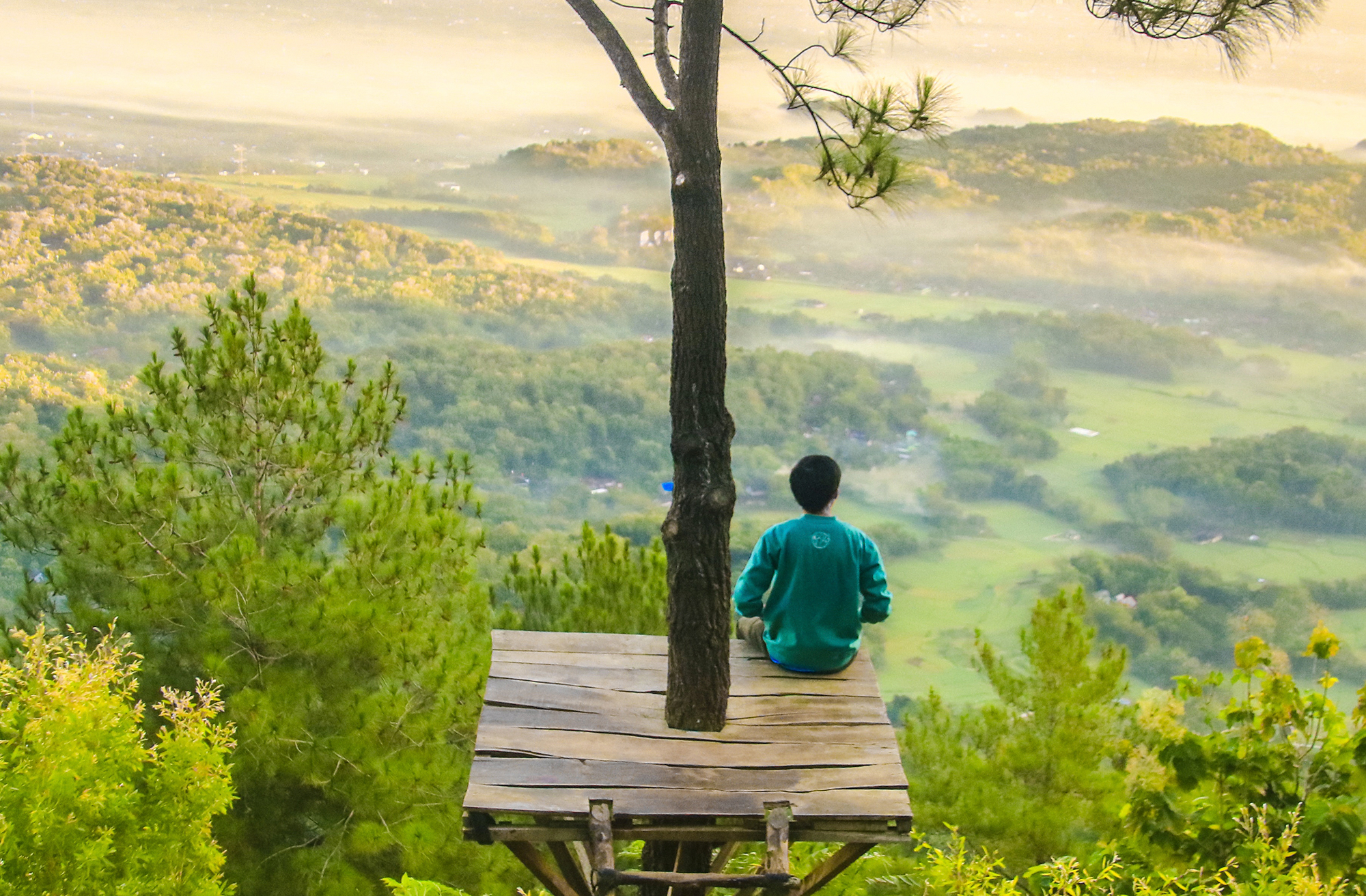To continue from my last article, I’d like to share an experience from another seminar I attended.
It happened in the evening of an exciting day when for the first time in my life, I had been gazing at the majestic snow-covered Swiss Alps, and walking on an imperceptibly flowing glacier. After returning to our lodging, the group was sharing what had touched us deep in our hearts on our excursion.
I was at a loss about what to share because all that was in my heart was a vague memory of the scenery and no recollection of having been deeply moved. What on earth had I been looking at all day? As I thought about this, I realized that I had spent the whole day busily taking pictures of the scenery. The film had been fully exposed, but there had been no time for my heart to be moved.
In the book, The Reality Of Blessedness, Michiko Inukai writes about a young traveler who had an experience similar to my own, being in the Swiss Alps, and yet not being there. He was surrounded by beautiful scenery that he saw, but didn’t see, that he couldn’t see. The author states that ‘He couldn’t see it because he was not present to the mountains and all of the beauty around him.’ What she means by being present is that one’s body and heart are fully there, face to face as it were.
Present means ‘here and now’ and it also means ‘a gift.’ According to the author’s logic, I took photos of the mountain, but at the time, my body and my heart were not fully there, face to face with the mountain, and so I was not able to receive from the mountain the wonderful gift it had to give. In other words, I was not able to truly see the beauty and to be deeply moved by it.
By way of contrast, in the chapter of the book titled ‘Present,’ the author introduces an elderly couple who were fully present to everything. They traveled their life journey receiving gifts from everything they encountered, being impressed by and experiencing a strong sense of gratitude for everything. The author says that she was amazed at ‘the way they look at things,’ the depth of their perception, at ‘their wonder at what they saw,’ and at the youthfulness of their way of seeing.
If our experiences of wonder are few and far between, it is not the fault of our environment or circumstances, but rather a problem with the way we live. If all we can deal with is what is right in front of us, we will not be able to come face to face with the various events of our lives. If we only attach value to the end result of things, we become unable to thoroughly savor the various experiences that are part of the process.
If we live our lives in such a way, our experience of profound emotion will be impoverished; in other words, we will miss out on having our hearts feel deeply and being moved by life’s experiences. To put it even more precisely, it is losing touch with what it is that your own heart is noticing and feeling, what your heart is experiencing in the context of many events and experiences. It is becoming insensitive to the movements of your heart, the joys and sadness, the comfort and the wounds. And so it is too with our daily fellowship with God, we become incapable of giving thanks from our hearts, of repenting with contrite hearts, and of pouring out our hearts in prayer.
For a long time, I believed that the best prayers were prayers that were well organized with no wasted words, concise. So my prayer time was very short. On the other hand, I felt that my wife’s prayers were disorganized with lots of wasted words, and if I am honest, I felt they were boring.
I may have been able to pray rationally, but I was not able to pray with deep emotion. If we are out of touch with our hearts, it is very difficult to pray from our hearts and our fellowship with God stops at the level of our reason. I was still far from the world of the Psalms.
Beginning with my shock at the poverty of my emotional response to the beauty of the Alps, a desire gradually emerged to begin to look at things face to face, to come face to face with what is in my heart and to relate to God and others on a heart level.
A short time after experiencing this shock, I had an unforgettable experience. I tried to look with the eyes of my heart at the silently sleeping trees that were bathed in the rays of the moonlight, the hazy silhouette of the mountains rising in the distance beyond the dark valley. And what do you know! Even the next day when I closed my eyes, the image of that scene was revived afresh in my mind along with the deep emotion I had experienced.
In my wonder that I, too, had a heart capable of experiencing deep emotion, I borrowed the first line of one of Basho’s poems and wrote my first Haiku:
Does not the heart, too,
If one gazes thoughtfully,
Reflect the bright moon.
